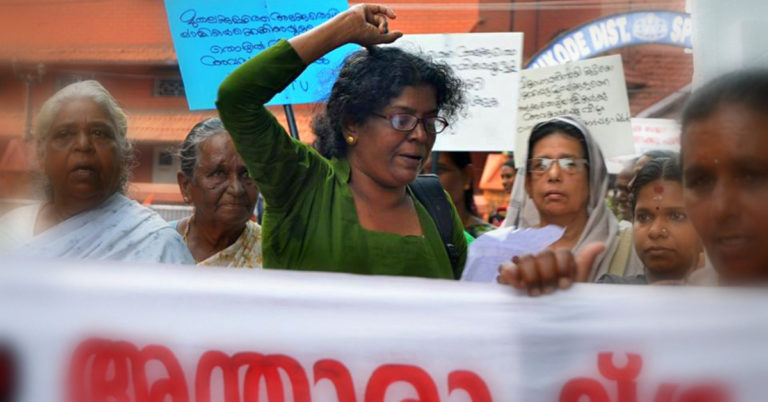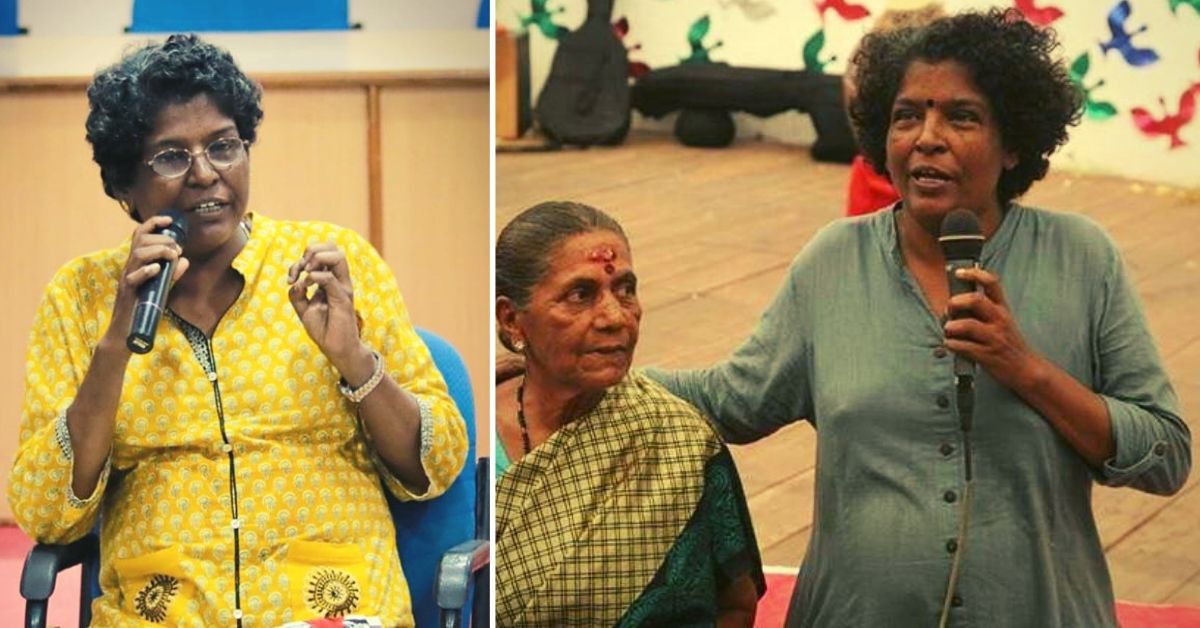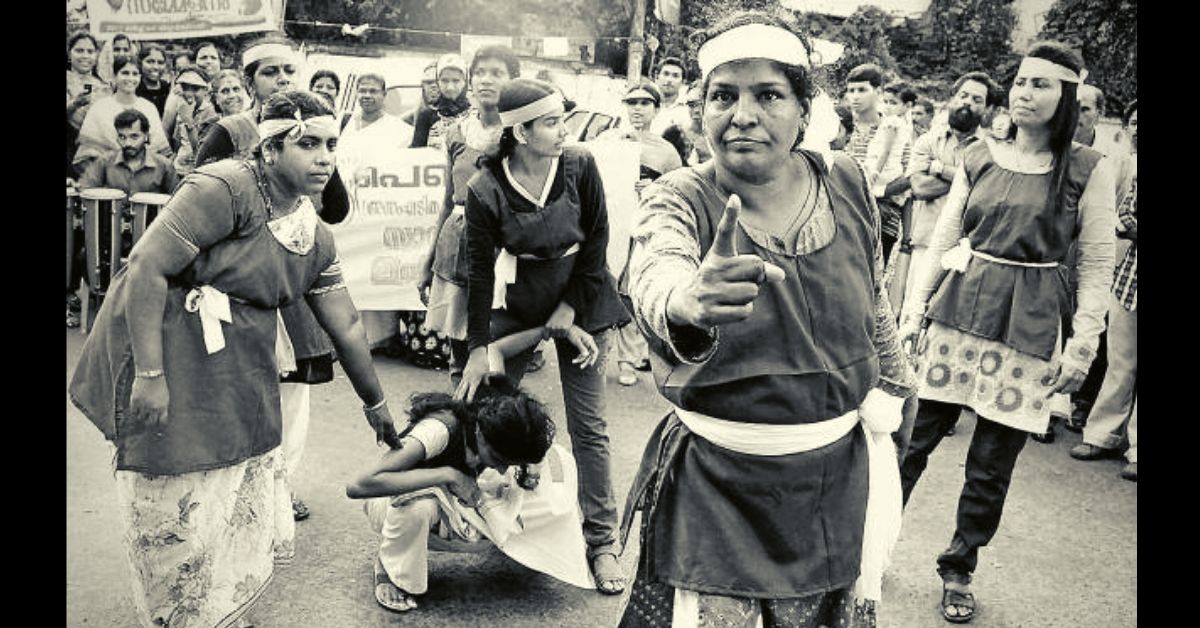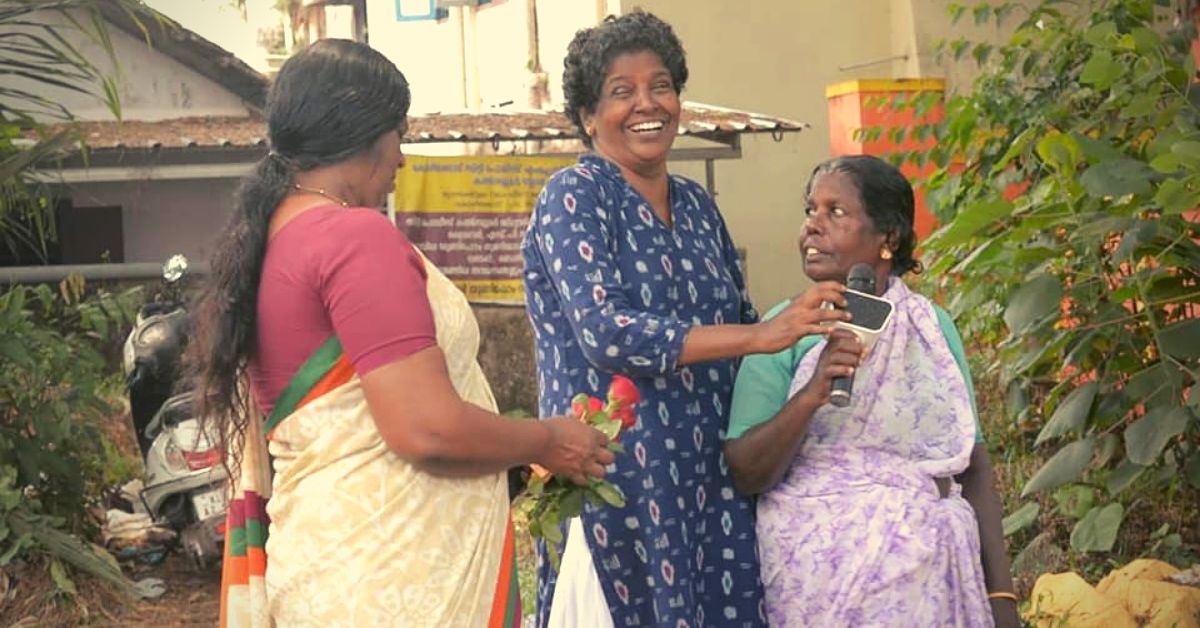‘Treat Us as Humans At Least’: Kerala Woman Who Crushed Decades of Patriarchy
“When we demanded the need for toilets, I remember, we were told to ‘drink less water, so that you don’t need to visit the washroom at all.’ One response was even about using some tube to urinate in while working hours!”

Known as the sweet spot of Kerala, Kozhikode’s SM street is a popular pitstop for locals and tourists alike. Its abbreviation ‘SM’ stands for sweetmeat or Mittai Theruvu (in Malayalam), after the Kozhikkodan Halwa, the famous delicacy that is available in plenty there.
For those who are yet to discover the spot, this street bustling with colours, people and a host of fragrances, is a picture similar to that of any busy mandi or a bazaar. However, beyond the rainbow-coloured sweets and the market’s historic status of being one of the most prominent trade centres in Kerala, it is also a seat of a local feminist movement that fought for women’s right to equal treatment in a sales-based workspace.
You ask how?
Imagine leaving home early in the morning to work in one of the local shops or malls and staying till 7 or 8 in the evening, and in all this time, being denied the basic right to use the toilet or to even sit.
Unbelievable, right?
But, that used to be the state of all the saleswomen working in not just this bazaar, but all around the state, under the hovering gaze of their employers.
“Shop owners would constantly watch over them, and try and cut their pay even if caught whispering a word to their co-worker. They weren’t allowed to sit or even use the washroom in case, there was one, in the first place. They wouldn’t even drink water, due to which many would contract complications in their uterus and other infections,” says P Viji.
She is the same lady, who perturbed by this situation, started the first-of-its-kind smoke of social change by setting up a women-centric trade organisation, Penkoottu, which means ‘women’s nest.’
Her 9-year-long struggle finally succeeded, when the Government of Kerala amended the Shop and Commercial Establishments (Amendment) Act in July 2018, to ensure that every single shop in the state had a toilet and seating facility for its staff.
Owing to her contribution, 51-year-old Viji was also mentioned among the three Indians who were included in the ‘100 inspiring and influential women from around the world’ released by the BBC in 2018.

Rising Smoke at Mittai Theruvu
It was 1984, when Viji secured her first job at the age of 16, in a tailoring shop tucked away in the corner of Mittai Theruvu market and experienced, for herself, the problems faced by women in these shops. In solidarity, at first with her co-workers and then slowly with all the women working in the area, Viji began to organise meetings to discuss work conditions, environment and other issues.
An eye-opener of sorts, this dialogue not only exposed Viji to the real horrors of gender-biased treatment in workplaces, but also made the women aware of their rights, and that they deserved more.
“Every time we approached trade unions, we realised from the responses that an overarching influence of patriarchy governed them all. Women’s issues were either less critical or completely neglected. When we demanded the need for toilets, I remember, we were told to ‘drink less water, so that you don’t need to visit the washroom at all.’ One response was even about using some tube or hose to urinate while working hours!” she shares.
Elaborating on the horrifying experiences, she adds how women would have to continuously work while standing for 10-15 hours at a stretch. And how, every time an employer was approached for redressal, they would be greeted with a shocking response: ‘Why do they need to sit if we are giving them a salary?’
Instances as these triggered Viji, and along with the other women, they decided to form Penkoottu, an all-women trade union, that provided them with the much-needed voice to fight for their fundamental rights.
But the battle had just begun.

“Whenever we went to them citing our problems and demanding to be treated as humans, shop and mall owners or people in-charge would challenge us and ask us to point out a law that mandated them to find solutions to these problems. The lack of a proper government directive or law made things difficult for us.”
Owing to this in 2014, she set up the Asanghaditha Mekhala Thozhilali Union (Union for Workers of Unorganised Sectors) to increase the reach to all across the state.
“A few years back, the plight of a woman was invisible. At work, they would endure this torture and back at home; they would toil again for their families. And all Penkoottu wanted to do was at least change how things were at work. So, one of the biggest and foremost achievements for us was to get women seen as workers or labourers and not just dispensable individuals or objects. At least in Kozhikode, since 2009, they are now seen and treated as a human,” she quips.
From a Chip to Crack in Patriarchy
Penkoottu’s continuous efforts, in 2014 pushed the LDF government to look into making amendments in the labour laws that guaranteed female workers equal rights, reasonable working hours, a secure environment and most importantly, the right to sit.
It took four more years to let this come to fruition when in 2018 the amended law was finally passed.
Today, not just in Kozhikode’s Mittai Theruvu market, but all across the state, enforcement officers are in charge of ensuring these mandates are practiced, and Viji makes sure that these voices of women are always heard, loud and clear.

“We are thankful for the support we have received from the law. But, in a country where women still get paid a quarter of the money that men get, for the same labour or work, there is still a lot to do. It’s a long hard road, and we have just begun,” concludes Viji.
Also Read: Acid Attacks to Foeticide: 10 Gritty Crusaders For Gender Equality in India
(Edited by Gayatri Mishra)
Like this story? Or have something to share?
Write to us: [email protected]
Connect with us on Facebook and Twitter
If you found our stories insightful, informative, or even just enjoyable, we invite you to consider making a voluntary payment to support the work we do at The Better India. Your contribution helps us continue producing quality content that educates, inspires, and drives positive change.
Choose one of the payment options below for your contribution-
By paying for the stories you value, you directly contribute to sustaining our efforts focused on making a difference in the world. Together, let’s ensure that impactful stories continue to be told and shared, enriching lives and communities alike.
Thank you for your support. Here are some frequently asked questions you might find helpful to know why you are contributing?


This story made me
-
97
-
121
-
89
-
167













